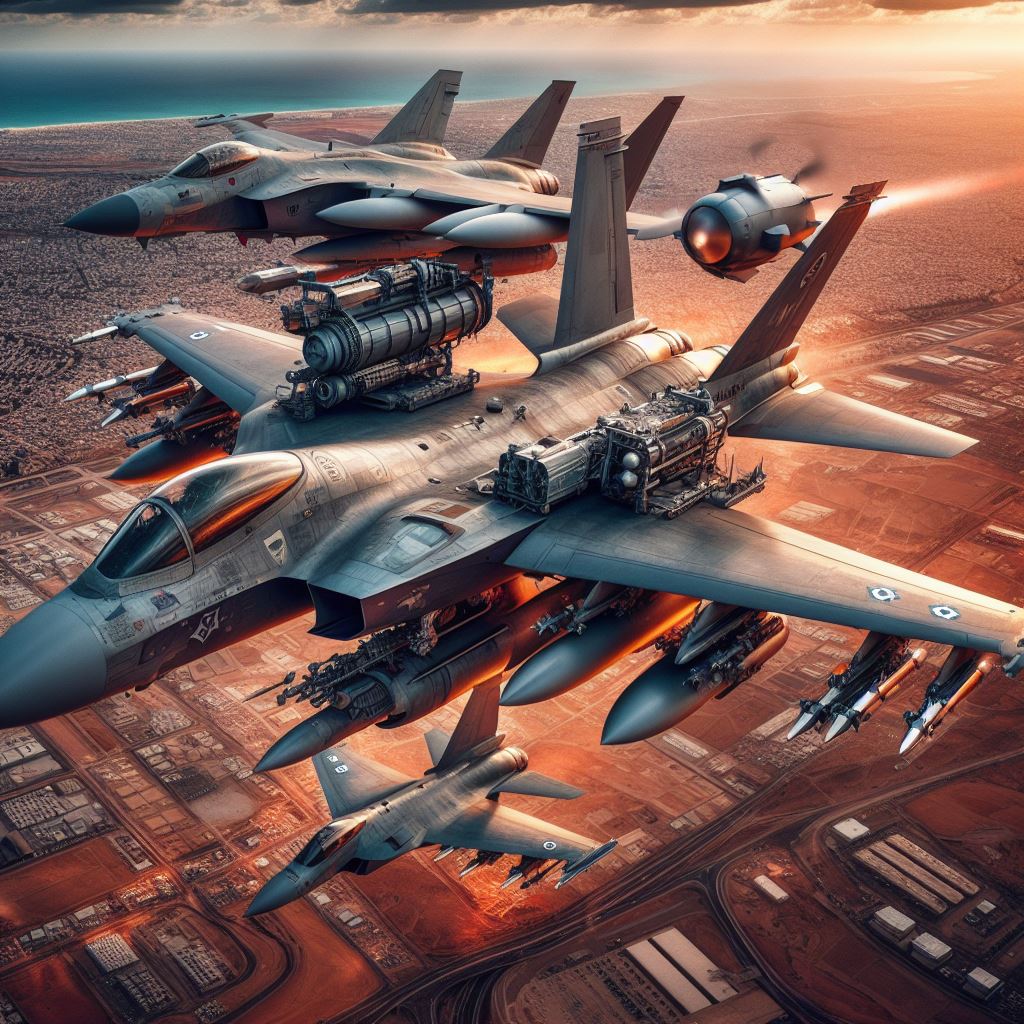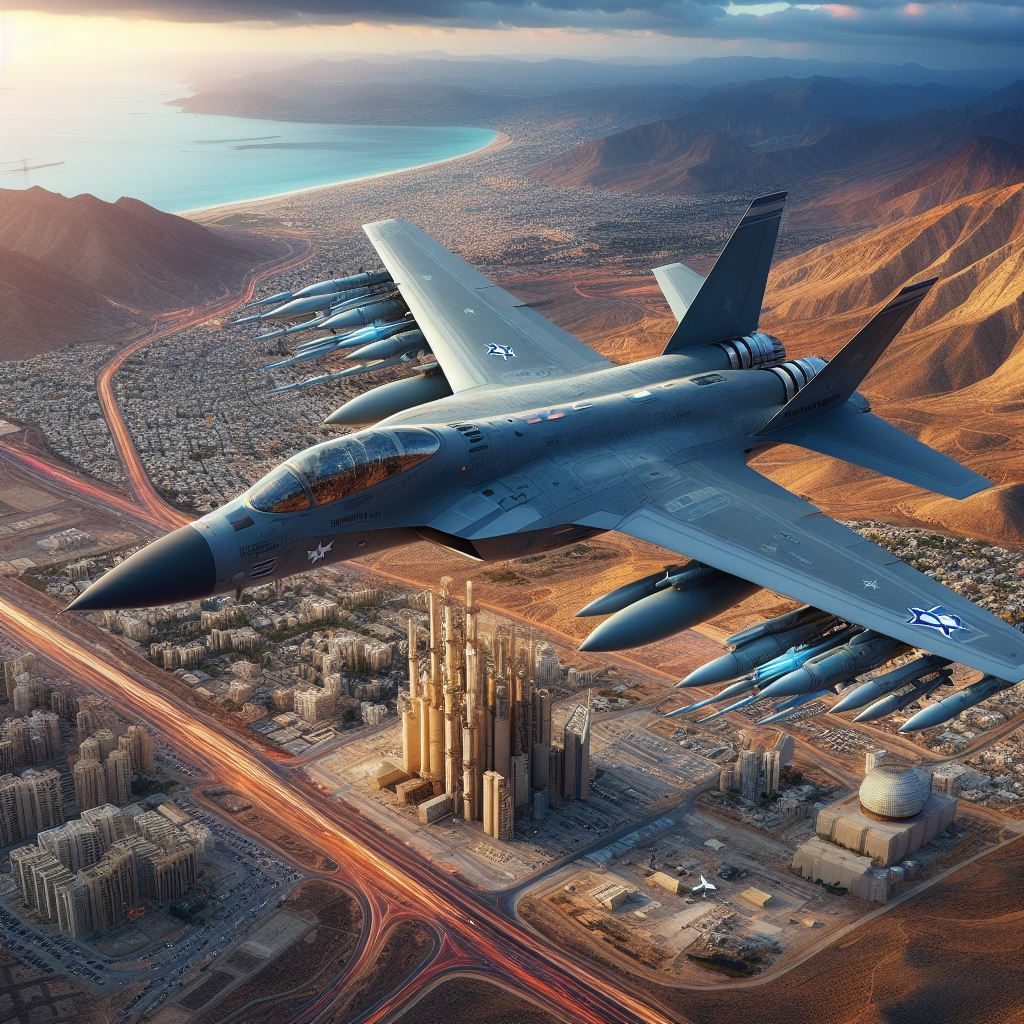如果以色列與伊朗全面開戰,誰會獲勝?
伊朗總是針對以色列打代理人戰爭的主要原因之一是宗教和地緣政治的因素。伊朗是一個伊斯蘭共和國,以伊斯蘭教什葉派為主,而以色列是一個主要由猶太教徒組成的國家。這兩個國家之間存在宗教和意識形態上的分歧,這在一定程度上驅使伊朗對以色列採取敵對行動。
此外,以色列和伊朗之間的敵對情緒還受到地緣政治和區域競爭的影響。伊朗希望擴大在中東地區的影響力,並支持與以色列對抗的組織和政權,以在該地區發揮更大的影響力。因此,伊朗通常通過支持巴勒斯坦的哈馬斯和伊斯蘭聖戰組織等組織來對以色列進行代理人戰爭。
至於誰會在兩國之間的直接衝突中獲勝,這是一個非常複雜的問題,涉及許多因素。以色列是一個高度現代化且擁有先進軍事技術的國家,同時擁有強大的軍事力量和盟友支持。伊朗則是一個人口眾多、地理位置優越、擁有強大的軍事力量和意識形態影響力的國家。然而,兩國之間的戰爭可能會引發整個中東地區的動蕩和不穩定,可能會牽扯到其他國家和國際利益。因此,儘管有各種猜測和分析,但實際上誰會在兩國之間的戰爭中獲勝是難以預測的,而且這樣的衝突將對整個地區和國際社會產生嚴重的後果。因此,解決這種衝突的最佳途徑是通過外交手段和國際合作來解決分歧和衝突,而不是通過戰爭。
如果以色列和伊朗真的爆發戰爭,透過兵推演練來看很可能以色列會取得大勝。雖然兩國相距超過1000公里,中間還隔著約旦和伊拉克兩國,但以色列擁有先進的戰機和軍事技術,伊朗難以抵抗。以色列屆時將會使用最新型的戰機進行轟炸,而伊朗則可能只能使用低端的無人機和導彈進行反擊。然而,空軍實力有限的伊朗,僅有少數的F14熊貓和米格29戰機,且作戰範圍有限,不超過600公里,根本無法有效對抗以色列。他們計劃向俄羅斯購買蘇愷35戰機,但俄羅斯的飛機在烏克蘭戰爭中已經遭到大量擊落,且蘇愷35在夜間飛行時面臨困難。
以色列還擁有先進的戰機和防空系統,如愛國者飛彈、G550海雕式預警機和F15、F16以及改版後的F35戰機。這些戰機可以在夜間進行轟炸,而且F35戰機的飛行距離達到1600公里,無需空中加油就能直接抵達伊朗進行攻擊。以色列自2008年開始就曾多次派遣F35戰機轟炸敘利亞的伊朗軍事基地,俄羅斯的防空系統與雷達根本無法阻擋。因此,如果兩國開戰,以色列可能會取得絕對優勢,摧毀伊朗的重要軍事設施及雷達。然而,兩國長期的仇恨和以色列的反核立場也可能導致目前局勢進一步惡化,但不至於走向全面開戰的地步,因為伊朗也知道取得勝利的機率不高。
One of the primary reasons why Iran consistently engages in proxy wars against Israel is due to religious and geopolitical factors. Iran is an Islamic Republic predominantly of Shia Muslims, while Israel is a nation primarily composed of Jewish people. There are religious and ideological differences between these two countries, which to some extent drive Iran's hostile actions against Israel.
Additionally, the hostile sentiments between Israel and Iran are influenced by geopolitical and regional competition. Iran seeks to expand its influence in the Middle East region and supports organizations and regimes that oppose Israel to exert greater influence in the area. Therefore, Iran often wages proxy wars against Israel by supporting organizations like Hamas and Islamic Jihad in Palestine.
As for who would prevail in a direct conflict between the two countries, it's a highly complex issue involving numerous factors. Israel is a highly modernized nation with advanced military technology, strong military capabilities, and support from allies. Iran, on the other hand, is a populous country with strategic geographical positioning, powerful military capabilities, and ideological influence. However, a war between the two could potentially lead to turmoil and instability throughout the entire Middle East region, possibly involving other countries and international interests.
Therefore, despite various speculations and analyses, predicting the outcome of a war between the two nations is challenging, and such a conflict would have serious consequences for the region and the international community. Hence, the best approach to resolving such conflicts is through diplomatic means and international cooperation to address differences and disputes rather than resorting to war.
If a war were to break out between Israel and Iran,base on simulation that Israel would likely emerge victorious. Despite the distance of over 1000 kilometers between the two countries, with Jordan and Iraq in between, Israel possesses advanced military aircraft and technology, making it difficult for Iran to resist. Israel would utilize its state-of-the-art aircraft for bombing raids, while Iran would likely only have access to low-end drones and missiles for counterattacks. However, Iran's air force is limited, with only a few F14 Tomcats and MiG-29 jets, and their operational range does not exceed 600 kilometers, rendering them ineffective against Israel.
Iran plans to purchase Sukhoi Su-35 jets from Russia, but Russian aircraft suffered heavy losses during the Ukraine war, and the Su-35 faces difficulties in night operations.
Israel has advanced fighter jets and air defense systems, including Patriot missiles, G550 airborne early warning aircraft, and F15, F16, and upgraded F35 fighter jets. These aircraft can conduct bombing raids at night, and the F35's range of 1600 kilometers allows it to reach Iran without aerial refueling. Since 2008, Israel has dispatched F35 fighter jets to bomb Iranian military bases in Syria, bypassing Russian air defense systems and radar. Therefore, if war were to break out, Israel would likely have the upper hand, destroying Iran's crucial military facilities and radar. However, the long-standing animosity between the two countries and Israel's anti-nuclear stance could escalate the current situation. Nevertheless, it is unlikely to escalate to full-scale war, as Iran is aware of the low likelihood of victory.


照片:DALLE3
- 1
- 2
- 3
- 4
